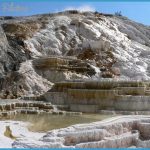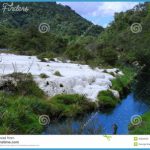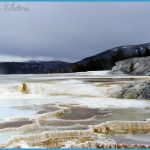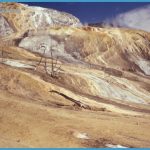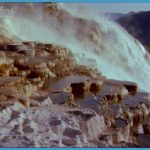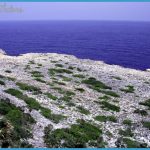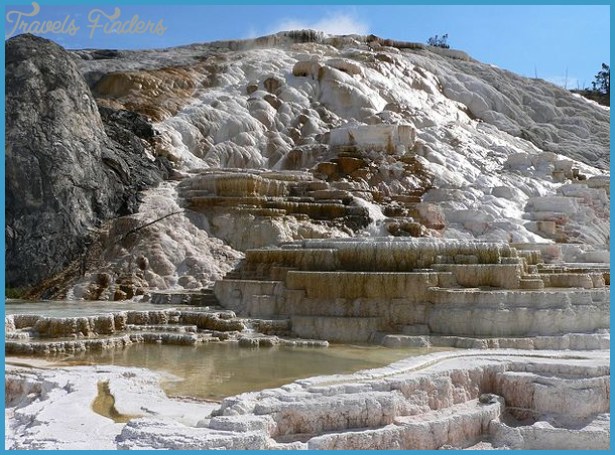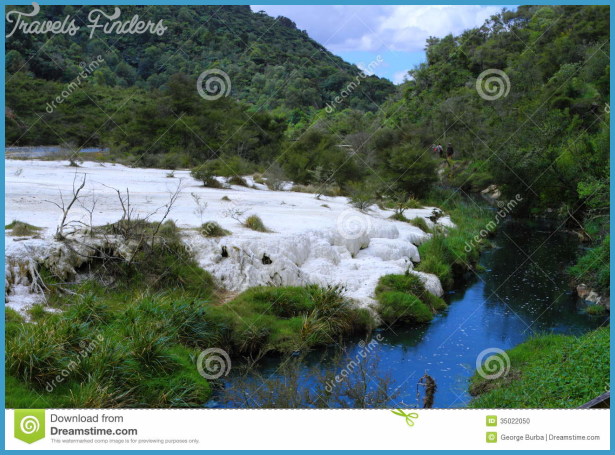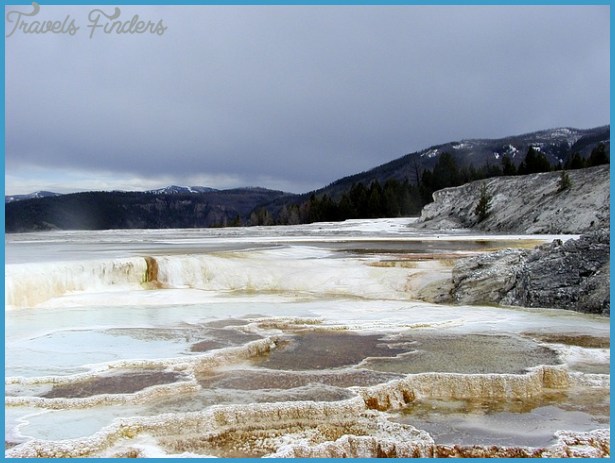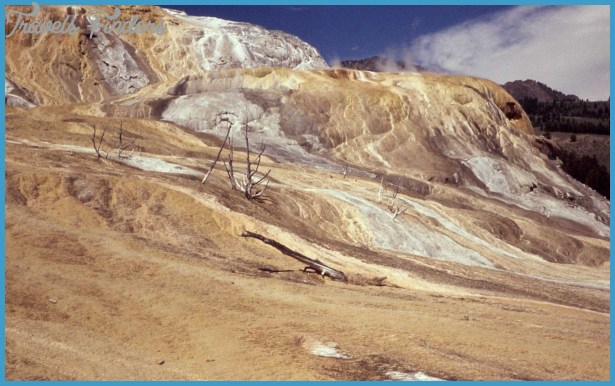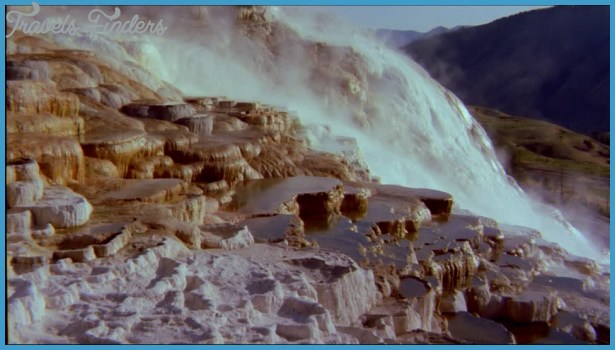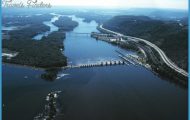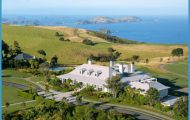The water at the north end of Terrace Spring appears to be boiling but has been measured at only 141°F (61°C). The bubbling is due to carbon dioxide gas bubbles expanding as they reach the surface of the water. Terrace Spring is an unusual place in the park, in that the waters of the springs deposit both siliceous sinter and travertine. The deposits of sinter on the surface are to be expected, since the hot water comes up through rhyolite lava rich in silica. However, it’s something of a mystery where the travertine comes from, since it has to come from rocks rich in calcium.
The calcium and carbon dioxide could originate from deeply buried older limestones that were later covered by the rhyolite lavas. some weeks of the summer and purple fringed gentians along with tall yellow sunflowers in other weeks. 13.1/0.2 Purple Mountain Trail-head. This trail can take you about 1600 feet up (490 m) in about 3 miles (5 km) to a spectacular view in all directions. Purple Mountain was named for the color of the rock it’s made of. The welded tuff (or volcanic ash fall) contains pink crystals of a variety of the mineral feld- spar that here is rich in potassium, giving an overall purplish color to the rock.

